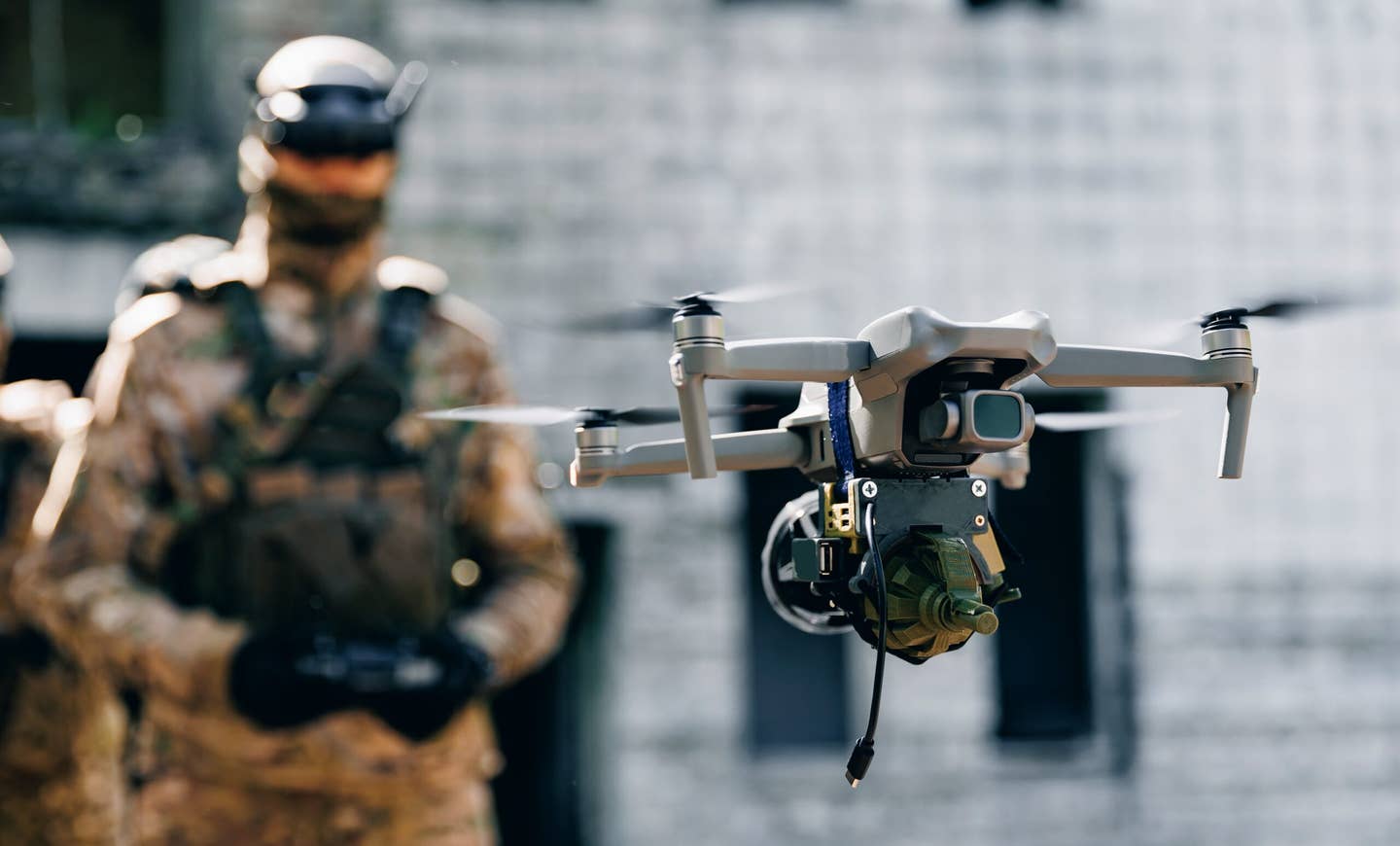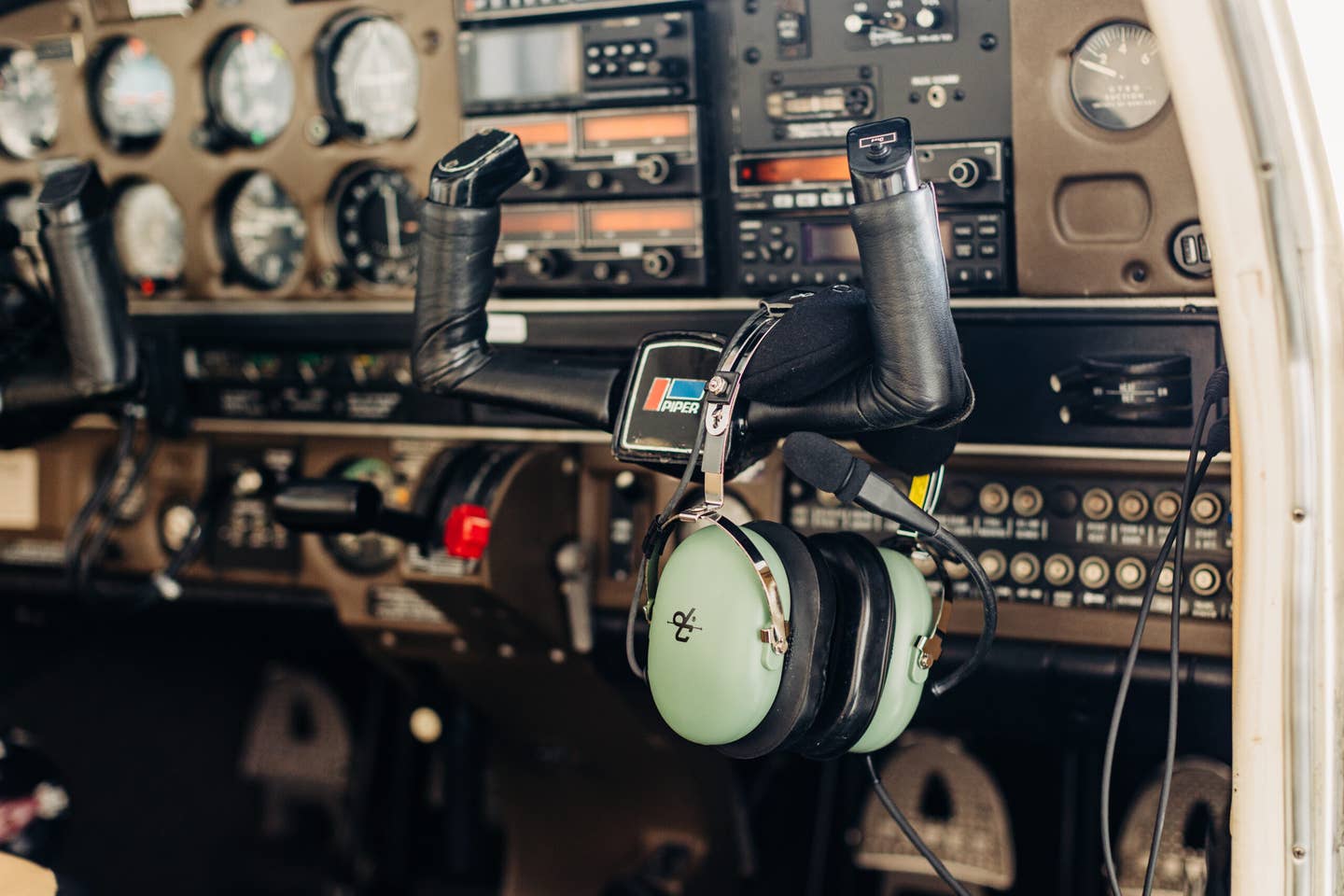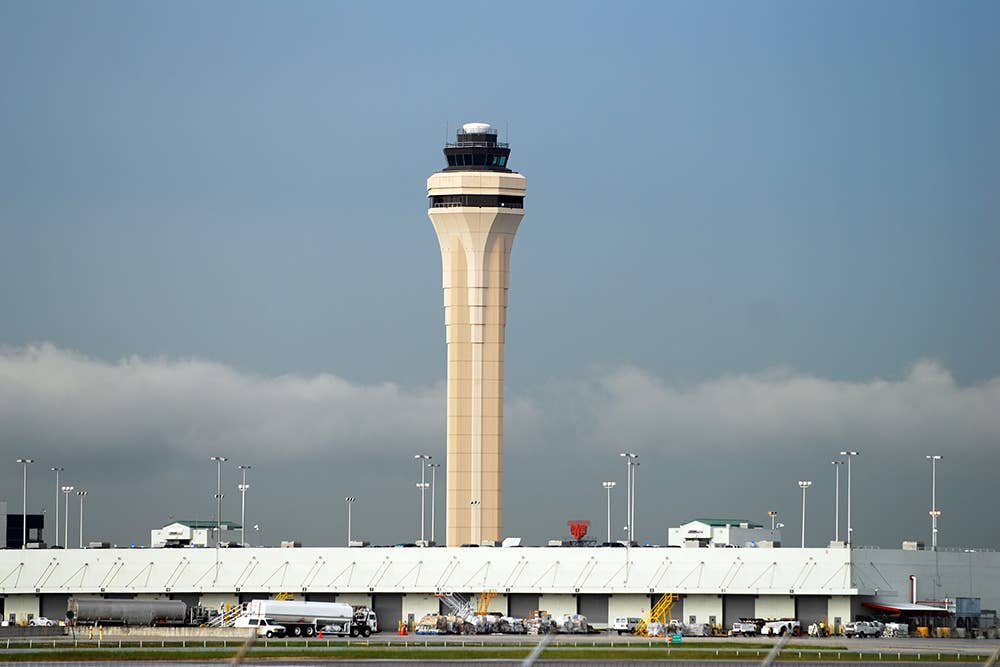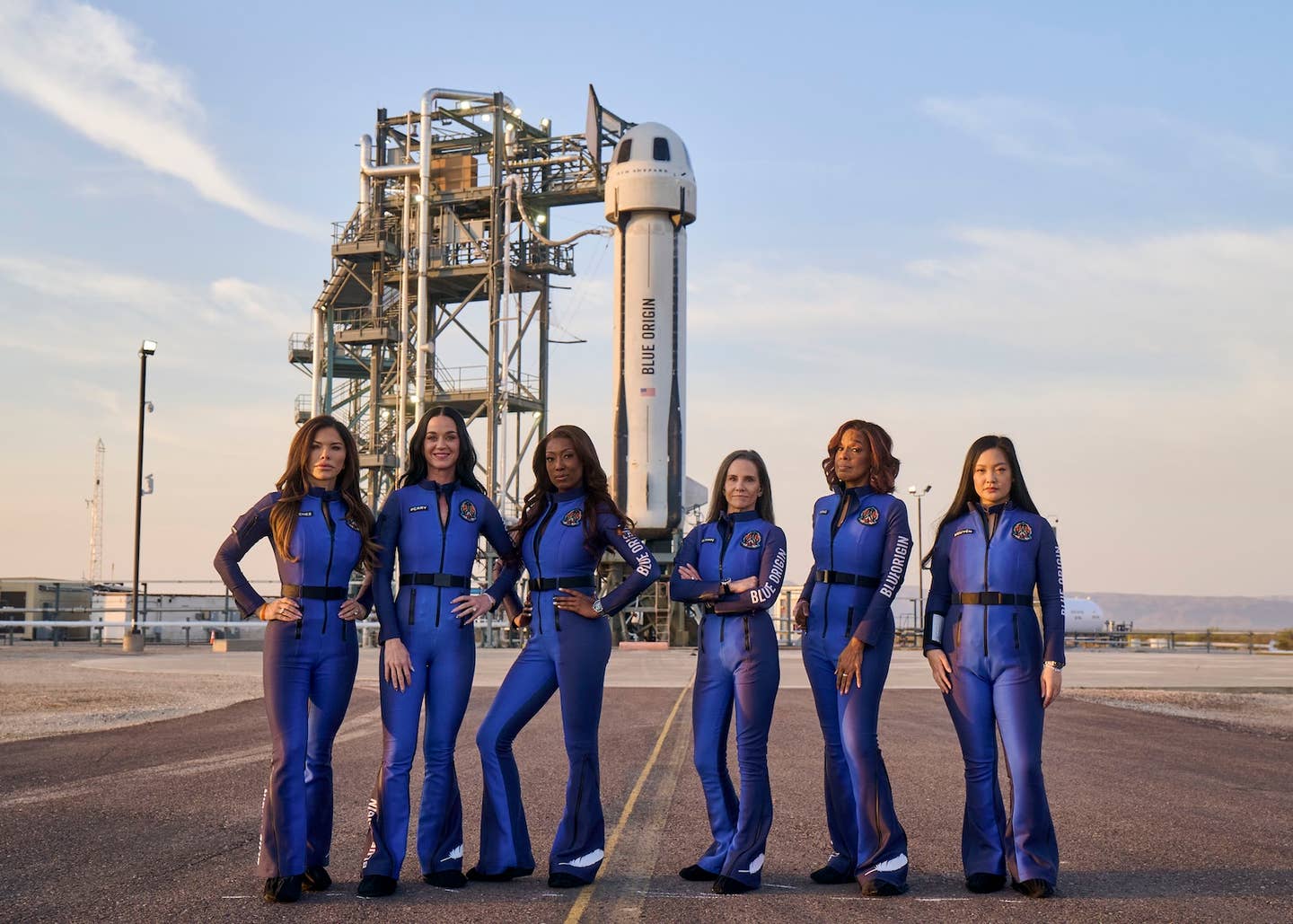Marine Corps To Advance Uncrewed VTOL Program
Marines are looking to unmanned vertical takeoff and landing aircraft to support logistics for distributed operations.
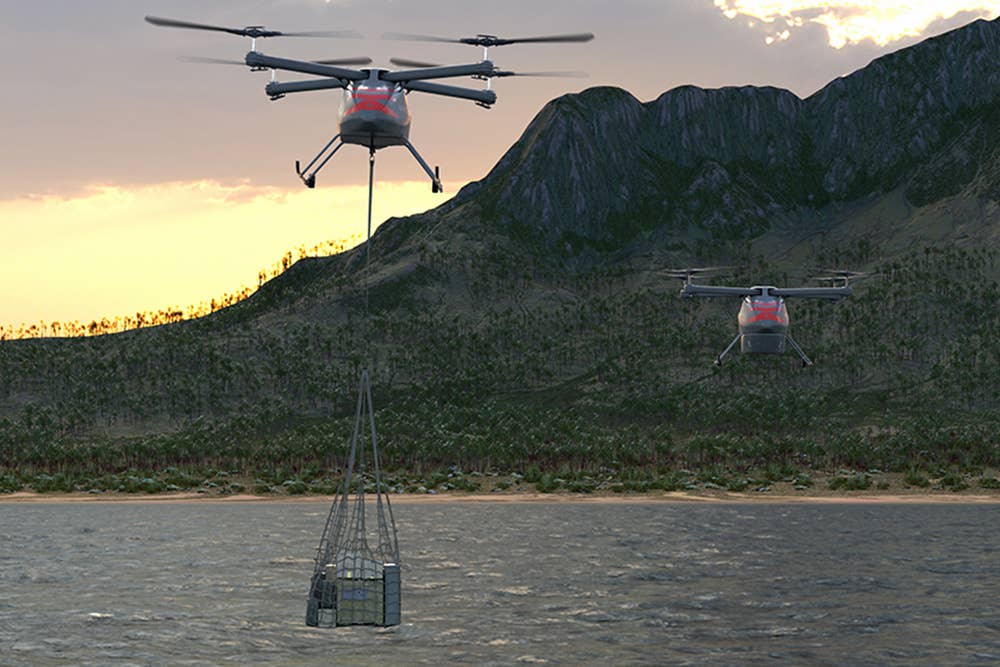
Last fall, Kaman Corporation unveiled a medium-lift, autonomous unmanned quadcopter system purpose-built for expeditionary logistics operations that can be operated by as few as two people. [Courtesy: Kaman Corporation]
The U.S. Marine Corps is poised to launch a new uncrewed vertical takeoff and landing (VTOL) program for cargo in the coming year, according to reports.
The initiative, which would draw from technology emerging in the commercial sector, would be aimed at supporting logistics for Marines in the western Pacific. Marines are eyeing hybrid and electric VTOL technology emerging in the commercial sector for the service's new unmanned logistics system-airborne large (ULS-AL) program it intends to initiate in fiscal 2023 in order to support distributed operations, Aviation Week reported.
Speaking at last week’s Modern Day Marine event in Washington, D.C., Lt. Col. Nicholas Molder, of the Cunningham Group, the Marine Corps' aviation think tank that designs future force initiatives, outlined that the concept aims to turn to a VTOL family of systems as a cost-effective way to continuously evolve capability.
"What we don't have is a simpler air vehicle that can be maintained with relative ease—and, ideally, be a little bit less costly as well," Molder said.
The concept would redefine Marine aviation, which is traditionally focused on assault support and troop transport.
"What we have not considered is what would it mean if the logistics combat element had their own air platform, if they were able to execute, fly, control, on their own?" Molder said, the Marine Corps Times reported. "It's going to shatter a lot of paradigms for how we go forward, if that's the case."
Marine aviation's approach of turning to a VTOL family of systems for replacement of the aging UH-1Y and AH-1Z helicopter fleet, instead of a more traditional singular program of record, will ideally ensure the service keeps pace with rapidly advancing technology, he said.
Last fall, Kaman Corporation unveiled a medium-lift, autonomous unmanned quadcopter system purpose-built for expeditionary logistics operations that can be operated by as few as two people. According to the company, the UAV is capable of hauling up to 800 pounds of cargo in a conformal pod or external sling up to 523 nautical miles.
The commercial market of uncrewed VTOL cargo aircraft is growing. Vermont-based electric vertical takeoff and landing (eVTOL) aircraft developer Beta Technologies, which recently announced it raised $375 million in Series B funding, is flight testing the cargo variant of its Alia aircraft. In March, Alia became the first electric aircraft piloted by U.S. Air Force airmen as part of its Agility Prime technology acceleration program.
Pipistrel is marketing its Nuuva V300, a long-range, large-capacity heavy-weight autonomous eVTOL UAV aimed at fulfilling aerial cargo delivery. The company's Nuuva V20 concept is aimed at smaller loads, up to 20 kg.
The technology is also garnering interest from global logistic giants. FedEx Express announced in late March that it is partnering with California-based Elroy Air to develop and test an autonomous hybrid eVTOL aircraft capable of picking up to 500 pounds of cargo next year.

Sign-up for newsletters & special offers!
Get the latest FLYING stories & special offers delivered directly to your inbox

